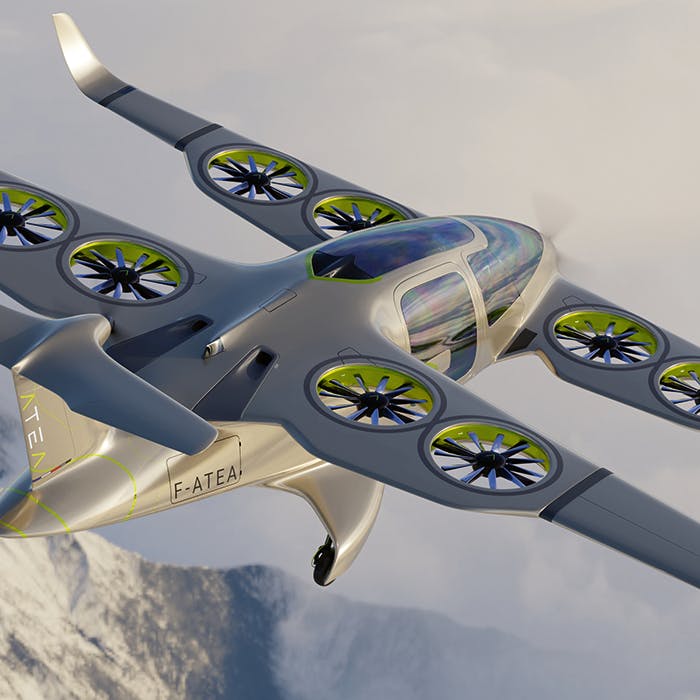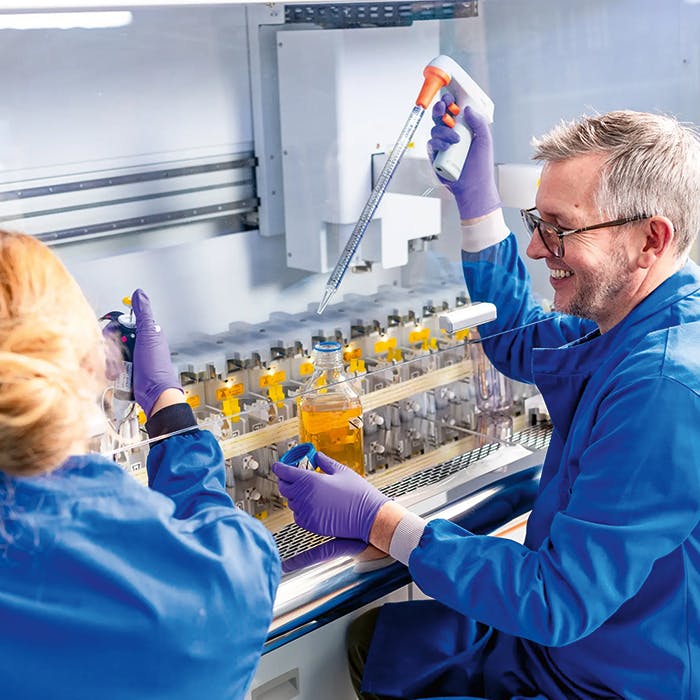

Industrializing decarbonized aviation solutions
Capgemini extended its collaboration with Ascendance, a startup focused on sustainable air mobility through hybrid electric propulsion. Ascendance has developed two groundbreaking innovations: STERNA modular hybrid propulsion system, which integrates multiple energy sources, and ATEA, a next-generation hybrid electric vertical take-off and landing (VTOL) aircraft powered by STERNA. The first flight of ATEA prototype is scheduled for the upcoming year, marking a significant step in demonstrating the potential of sustainable aviation technologies. The collaboration with Capgemini aims to transition to large-scale industrialization, leveraging our extensive expertise in engineering, battery development, and industrial ramp-up, supporting Ascendance’s mission to advance decarbonized aviation solutions and set new standards.
Our new approach to AI-driven protein engineering
Capgemini recently announced the development of a groundbreaking Gen AI-driven methodology capable of dramatically accelerating advancements in the bioeconomy. The innovative approach leverages a specialized protein large language model (pLLM) to predict the most effective protein variants, while requiring 99% less data than traditional methods. This significant reduction in data needs translates to drastically reduced development time and costs, making innovation accessible even to organizations with limited resources. The practical applications are already impressive, including the successful enhancement of an enzyme that increased its ability to break down PET plastic by 60%. Within Capgemini’s broader engineering biology capability, this breakthrough innovation is poised to help clients tackle global challenges in sectors including healthcare, agriculture, and environmental science.




Revitalizing sustainable, regional mobility with SNCF
Small railway lines, which represent a third of France’s rail network, are essential for strengthening carbon-free mobility in suburban and rural areas. So, French national rail operator SNCF collaborated with Capgemini and nine other partners to design TELLi, a carbon-free light rail train powered by alternative energy sources. The project was designed to address regional mobility challenges by offering a sustainable, economical alternative to traditional transport while enhancing territorial connectivity. Capgemini’s contributions included developing collaborative digital twins that simulate innovations prior to physical testing, ensuring optimal integration of advanced technologies. By streamlining operations and improving user accessibility, TELLi aims to redefine travel experiences on France’s smaller rail lines while contributing to carbon-free mobility.
